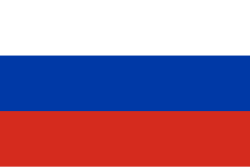
Back ثقافة روسية Arabic Rusiya incəsənəti Azerbaijani Култура на Русия Bulgarian রুশ সংস্কৃতি Bengali/Bangla Ρωσικός πολιτισμός Greek Rusia kulturo Esperanto Cultura de Rusia Spanish فرهنگ روسی Persian Venäläinen kulttuuri Finnish Culture russe French
This article needs additional citations for verification. (March 2022) |
This article contains too many pictures for its overall length. (February 2024) |

| Part of a series on the |
| Culture of Russia |
|---|
 |
| Society |
| Topics |
| Symbols |

Russian culture (Russian: Культура России, romanized: Kul'tura Rossii, IPA: [kʊlʲˈturə rɐˈsʲiɪ]) has been formed by the nation's history, its geographical location and its vast expanse, religious and social traditions, and both Eastern[1] and Western influence.[2] Cultural scientists believe that the influence of the East was fairly insignificant, since the Mongols did not coexist with the Russians during conquest, and the indigenous peoples were rather subjected to reverse cultural assimilation. Unlike the Scandinavian and more western neighbors, which have become the main reason for the formation of modern culture among Russians.[3] Russian writers and philosophers have played an important role in the development of European thought.[4][5] The Russians have also greatly influenced classical music,[6] ballet,[7] theatre,[8] painting,[9] cinema[10] and sport,[11] The nation has also made pioneering contributions to science and technology and space exploration.[12][13]
- ^ In part due to Russia's own geographical extent, neighbors, and internal ethnic diversity, e.g. Tatars and Buryats; in part due to its history, including over two centuries of being ruled by the Mongols:
Vernadsky, George (1969). "Chapter 3: Russia in the Mongol Period". A History of Russia (6th rev. ed.). New Haven: Yale University Press. pp. 57–84. ISBN 0-300-00247-5 – via Google Books. - ^ Lincoln, W. Bruce (10 October 1970). "Western Culture Comes to Russia". History Today. 20 (10). Retrieved 14 January 2022.
- ^ Likhachev, Dmitry (2000). Русская культура [Russian culture] (in Russian). Moscow: Iskustvo. p. 22. ISBN 5-210-01377-4.
- ^ McLean, Hugh (September 1962). "The Development of Modern Russian Literature". Slavic Review. 21 (3). Cambridge University Press: 389–410. doi:10.2307/3000442. JSTOR 3000442. S2CID 163341589.
- ^ Frank, S. (January 1927). "Contemporary Russian Philosophy". The Monist. 37 (1). Oxford University Press: 1–23. doi:10.5840/monist192737121. JSTOR 27901095.
- ^ Swan, Alfred J. (January 1927). "The Present State of Russian Music". The Musical Quarterly. 13 (1). Oxford University Press: 29–38. doi:10.1093/mq/XIII.1.29. JSTOR 738554.
- ^ Lifar, Sergei (October 1969). "The Russian Ballet in Russia and in the West". The Russian Review. 28 (4): 396–402. doi:10.2307/127159. JSTOR 127159.
...and in the twentieth century Russian choreographers and performers, disseminating the art of ballet throughout the world, attained world-wide recognition.
- ^ Senelick, Laurence (2015) [2007]. Historical Dictionary of Russian Theatre (2nd ed.). Lanham, Md: Rowman & Littlefield. ISBN 978-1-4422-4926-4.
- ^ Snow, Francis Haffkine (November 1916). "Ten Centuries of Russian Art". The Art World. 1 (2): 130–135. doi:10.2307/25587683. JSTOR 25587683.
- ^ Bulgakova, Oksana (2012). "The Russian Cinematic Culture". University of Nevada, Las Vegas. pp. 1–37. Retrieved 13 January 2022.
- ^ Riordan, Jim (1993). "Rewriting Soviet Sports History". Journal of Sport History. 20 (4). University of Illinois Press: 247–258. JSTOR 43609911.
- ^ Hachten, Elizabeth A. (2002). "In Service to Science and Society: Scientists and the Public in Late-Nineteenth-Century Russia". Osiris. 17. The University of Chicago Press: 171–209. doi:10.1086/649363. JSTOR 3655271. S2CID 144835649.
- ^ Ipatieff, V.N. (1943). "Modern Science in Russia". The Russian Review. 2 (2). Wiley: 68–80. doi:10.2307/125254. JSTOR 125254.
© MMXXIII Rich X Search. We shall prevail. All rights reserved. Rich X Search